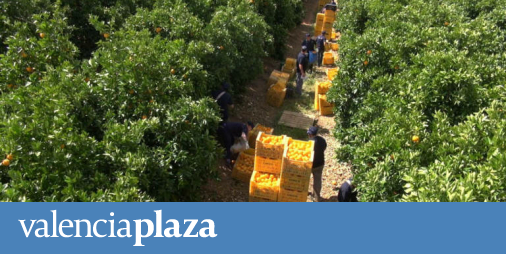Valencia (EFE / Inmaculada Martínez). At temperatures of 40 degrees Celsius maintained for several days, persimmons and Valencian citrus fruits live in southeastern Australia for the next few years, with an eye on climate change and experiments to determine their adaptability to other climatic and soil conditions.
Not only temperature but also rain and soil composition will be different components of this genetic development experiment Valencian Agricultural Research Institute (IVIA).
This experiment is reflected in the cooperation agreement between this research firm and the Durton Primary Industries Institute of Australia, which sends IVIA on rhizomes (plants and seeds) to plant citrus and persimmons in this city in the far west of New South Wales and they are protected by intellectual property.
The coordinator of the Center for Agriculture and Plant Production explains to EFE that IVIA has chosen a material that guarantees its assets as it is protected by the Valencian organization for future exploitation. Marisa Badens.
A test on antibodies
There, in more arid conditions and higher temperatures, they can be planted in multiple locations, and all the data they provide from the sensors (production, fruit quality and tree size) are recorded in a report. Will be sent to IVIA from the establishment of the garden.
Durton bears all the costs of the experiment, and it takes at least three years to collect the data, but it takes six or seven years to get conclusive data.
You have to have a plot, take care of the trees, have a technician who collects the data provided by the sensors … Depending on the area, it can cost several thousand euros a year, but in this case the installation is already highly mechanized and significantly invested in infrastructure.
IVIA receives a lot of data that is not available here with this agreement – according to Badness, “it would be very rich and useful” – and the possibility of expanding the exploitation of its substance; In fact, a second agreement with Australia is possible – to exploit plant material – if the results are concluded in accordance with its climate, rainfall and soil characteristics.
“The more behavioral data you get from the object, the more you need to know where you can cultivate, where you can not, and how to relate to the types of these patterns,” he adds.
While studying its advances in publications in scientific journals, IVIA became interested in plant products. Durton visited the Primary Industries Institute and Badens itself facilities, where the number of sensors and the efficiency of its staff stand out.
International View of IVIA
In the test area, they already grow citrus and persimmons, which are not the largest producers exporting to Southeast Asia, but they are not part of the competition for Spanish production, so it is “big enough to exploit our products there. ”, Considers the coordinator.
This is the first time a trial agreement has been signed with Australia, but IVIA is pursuing development projects and cooperating internationally with other countries, such as Argentina.
The exchange of genetic development projects that take into account climate change is gaining more and more interest from other countries, and they have received requests from South American countries as well as the United States, South Africa or Turkey, but this is growing little by little with the intervention of the Ministry of Foreign Affairs.
Badness explains that there is a lot of private research on crops, but if we talk about trees it is “too complicated” because projects can last 20 or 30 years, so the importance of public projects to get materials to suit our conditions.
Climate change presents many challenges: high temperatures, changes in rainfall, scarcity of water resources and water quality, which increase the pressure on plants by increasing the evaporation stimulus.
“Genetic improvement interferes with the selection of the best protection mechanisms for these conditions,” the expert concludes.

“Proud explorer. Freelance social media expert. Problem solver. Gamer. Extreme travel aficionado.”

